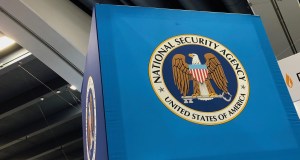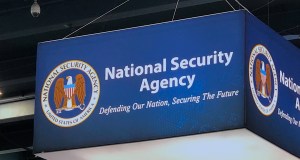Federal judge declines to grant DOJ interim injunction in Booz Allen antitrust case

A Maryland federal judge on Tuesday declined to grant the Department of Justice an interim injunction to stop Booz Allen Hamilton’s acquisition of signals intelligence company EverWatch.
Judge Catherine Blake from the U.S. District Court for the District of Maryland sided with Booz Allen and denied the DOJ’s request for a preliminary order to stop the deal.
A preliminary injunction to halt a transaction is often sought by the U.S. Government in antitrust cases with an appropriate likelihood of success and when the balance of equities is weighted in its favor.
It comes after the Justice Department in June filed a lawsuit in the U.S. District Court for the District of Maryland in a bid to halt Booz Allen’s proposed acquisition of EverWatch, a subsidiary of EC Defense Holdings. In its complaint, the U.S. government argued the deal would directly threaten competition for government contracts that provide operational modeling and simulation services to the National Security Agency.
Booz Allen pushed back strongly in the past few months on the DOJ’s claim that the merger hurt the federal government and is in support of the Maryland judge’s decision.
“At this time our statement is that we appreciate Judge Blake’s careful consideration of the evidence in this matter,” Jessica Klenk, director of media relations at Booz Allen Hamilton told FedScoop.
Booz Allen announced its plan to take over EverWatch in March, shortly before the NSA was scheduled to release the requests for their latest government contract needs.
In court documents filed in June, the Department of Justice said that prior to the merger agreement, Booz Allen and EverWatch had competed head-to-head to win NSA contracts and then “Booz Allen decided to buy its only rival.”
The DOJ’s argument against the deal centered on the award of a $17 million NSA intelligence modeling and simulation contract known as Optimal Decision, details of which were first revealed in court documents filed as part of the antitrust case.
As the principal U.S. defense intelligence agency specializing in cryptology, signals intelligence and the interception of communications, NSA periodically issues such government contracts to support its signals intelligence data missions.
Later in August, Booz Allen in court documents argued that the DOJ’s antitrust concerns that the deal is anticompetitive were “imaginative,” “bizarre,” and not based in law or economics.
Shortly after this the company put forward proposals intended to allay the DOJ’s concerns, which included signing a commitment that both companies would remain independent for up to a year.
The NSA has a Oct. 31 deadline for government contract bids and Judge Blake has asked the DOJ and Booz Allen to submit proposals for any further legal proceedings no later than 14 days after that deadline.
The Department of Justice did not respond to a request for comment.






